On a busy corner in West Sacramento, surrounded by high-density housing and railroad tracks, sits a 1-half acre oasis of soil and green shoots. A group of young people tend to organized rows of freshly planted carrots, squash and edible flowers that are neatly lined with mulch. They are part of the Urban Farm Youth Leadership Development Program, a paid 6 to 10-week agriculture class taught by Three Sisters Gardens.
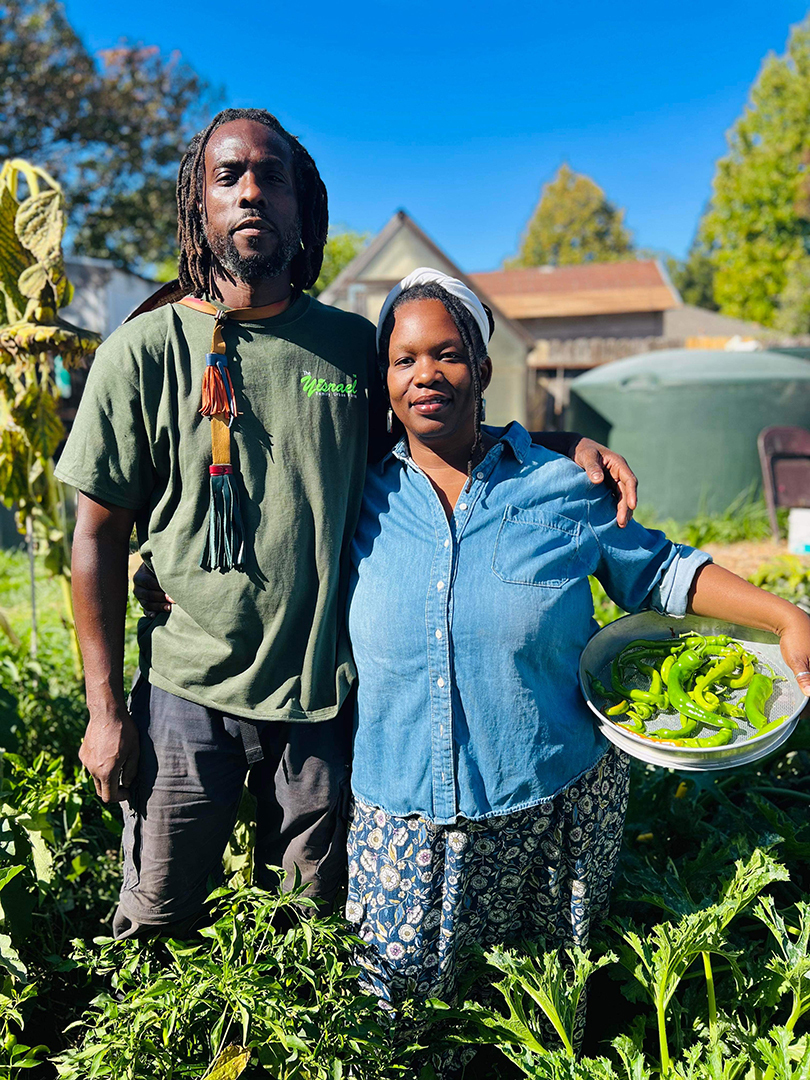
Three Sisters Gardens is a nonprofit organization with four urban garden plots in West Sacramento and a 1-acre tree nursery in Sacramento that has been operating since 2018 and aims to teach sustainable farming skills to local youth while contributing to an equitable food system.
The youths (up to age 25) laugh and fist-bump one another as they load trays of shishito pepper plants into the back of a van. The veggies will be harvested later this summer and will feed people in Sacramento’s most vulnerable communities who live in food deserts with little access to nutritious and affordable food.
In Sacramento, these communities deal with food insecurity and are located in “food swamps,” areas that are oversaturated with fast food restaurants, which provide low-nutritional food and can contribute to various health issues such as diabetes and obesity.
The youths (up to age 25) laugh and fist-bump one another as they load trays of shishito pepper plants into the back of a van. The veggies will be harvested later this summer and will feed people in Sacramento’s most vulnerable communities who live in food deserts with little access to nutritious and affordable food.
In Sacramento, these communities deal with food insecurity and are located in “food swamps,” areas that are oversaturated with fast food restaurants, which provide low-nutritional food and can contribute to various health issues such as diabetes and obesity.
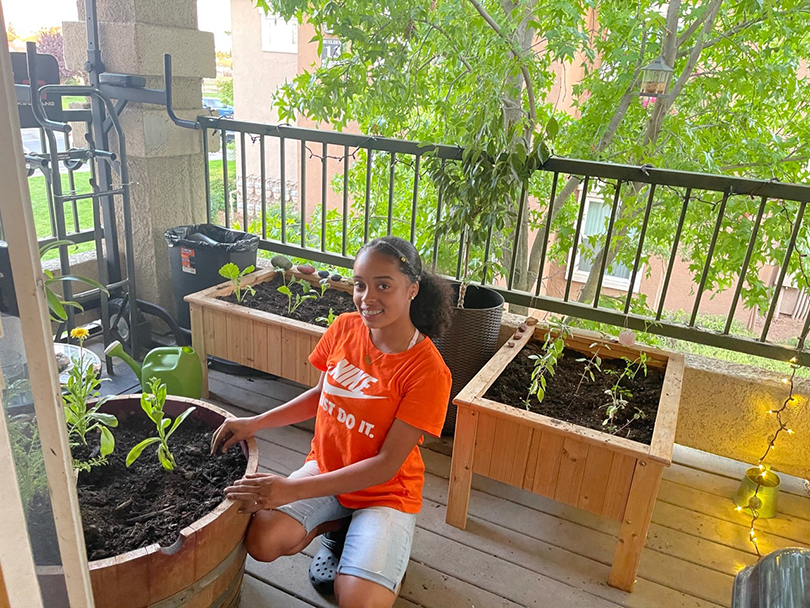
Urban farms — which can encompass anything from a small farm inside a city, a rooftop garden, hydroponic and vertical farming, edible landscaping or other unconventional methods — fill in food access gaps and contribute to healthier communities, according to Alfred Melbourne, founder of Three Sisters Gardens.
“Our goal is to give away up to 80% of what we grow. We deliver mainly to one low-income housing complex called Las Casitas, also known as The Pinks,” Melbourne said. “We also grow herbs for the Sacramento Native American Health Center for their diabetes program because we know that food is medicine.”.
Sacramento has a strong history of supporting urban agriculture and the city recently marked its 10th anniversary of an urban agriculture ordinance, which reduces barriers for disenfranchised groups of people to grow food, according to Paul Towers, executive director of Community Alliance with Family Farmers (CAFF).
“Multifamily and immigrant housing here [in Sacramento] started farming out of necessity — they wanted to grow food to support their families — but because they didn’t have any land to use, they started with vacant lots,” he said.
“Our goal is to give away up to 80% of what we grow. We deliver mainly to one low-income housing complex called Las Casitas, also known as The Pinks,” Melbourne said. “We also grow herbs for the Sacramento Native American Health Center for their diabetes program because we know that food is medicine.”.
Sacramento has a strong history of supporting urban agriculture and the city recently marked its 10th anniversary of an urban agriculture ordinance, which reduces barriers for disenfranchised groups of people to grow food, according to Paul Towers, executive director of Community Alliance with Family Farmers (CAFF).
“Multifamily and immigrant housing here [in Sacramento] started farming out of necessity — they wanted to grow food to support their families — but because they didn’t have any land to use, they started with vacant lots,” he said.
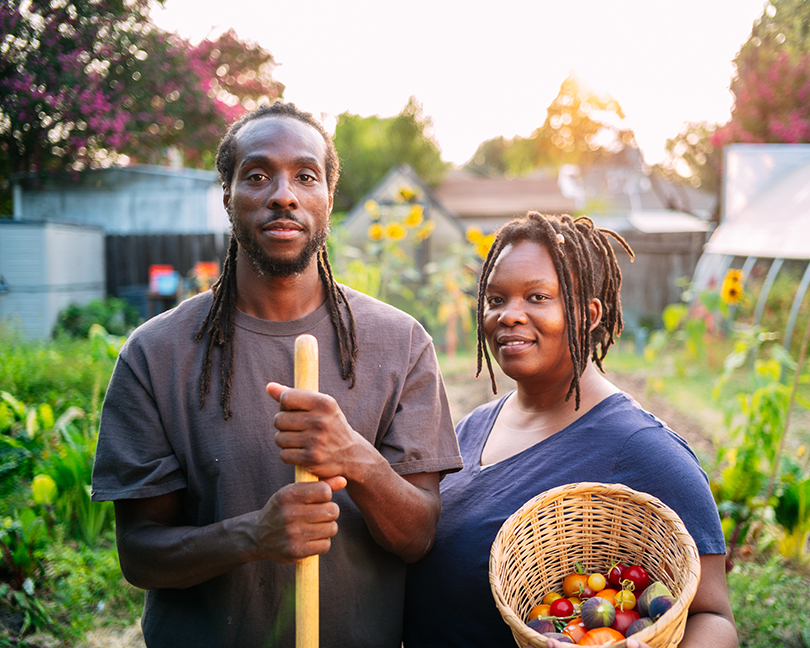
Three Sisters Gardens was started by Melbourne in an abandoned lot without the owner’s permission and he spent the first months clearing trash before he could tend the soil.
The City of Sacramento’s Urban Agriculture Ordinance allows for such gardens as well as the keeping of bees, chickens and ducks and for agricultural stands and cottage foods production.
But it wasn’t always this way. The rise of urban farming and the accommodation of small-scale cultivation and allowing animals that produce food — like backyard beekeeping — resulted from years of advocacy and policy work by groups like CAFF and Sacramento Food Policy Council who envision a more equitable and sustainable food system. And the State of California is now firmly behind the shift.
Sowing future seeds
Recent investments to 10 farms in California by the California Department of Food and Agriculture (CDFA) have infused urban agriculture in the state and agricultural growth remains a statewide priority, according to CDFA Secretary Karen Ross.
“California has 40 million consumers and is a very urbanized state so being able to have agriculture closer to where consumers are is a huge opportunity to build community and to enhance the understanding of what ends up on our plate,” she said. “By continuing to invest in urban agriculture and support the growth of farms across the state, California will strengthen the farmer-consumer connection while creating a more resilient food system.”
The City of Sacramento’s Urban Agriculture Ordinance allows for such gardens as well as the keeping of bees, chickens and ducks and for agricultural stands and cottage foods production.
But it wasn’t always this way. The rise of urban farming and the accommodation of small-scale cultivation and allowing animals that produce food — like backyard beekeeping — resulted from years of advocacy and policy work by groups like CAFF and Sacramento Food Policy Council who envision a more equitable and sustainable food system. And the State of California is now firmly behind the shift.
Sowing future seeds
Recent investments to 10 farms in California by the California Department of Food and Agriculture (CDFA) have infused urban agriculture in the state and agricultural growth remains a statewide priority, according to CDFA Secretary Karen Ross.
“California has 40 million consumers and is a very urbanized state so being able to have agriculture closer to where consumers are is a huge opportunity to build community and to enhance the understanding of what ends up on our plate,” she said. “By continuing to invest in urban agriculture and support the growth of farms across the state, California will strengthen the farmer-consumer connection while creating a more resilient food system.”
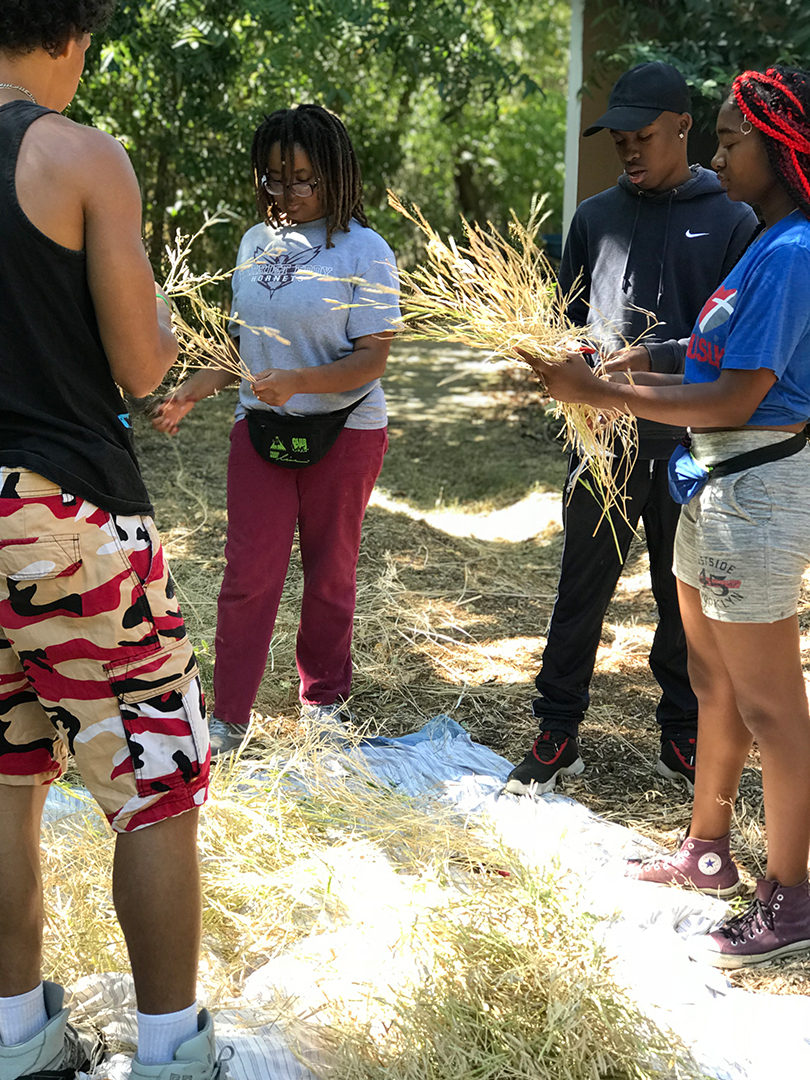
On National Agriculture Day in March, CAFF announced its grantees from the first Urban Agriculture program housed at the CDFA. CAFF regranted funds as a recipient of CDFA’s Systems Builder Community Based Block Grant, and four urban farms in Sacramento were selected to receive $10,000 grants to increase their operations.
The awardees are Del Paso Heights Growers’ Alliance in North Sacramento, Yisrael Farms in Oak Park and Yumm Strawberry Farm and Sankofa Farms in Elk Grove. The grants were distributed during a celebration held at the International Garden of Many Colors, a 2-acre urban farm in Sacramento.
The International Garden of Many Colors sits adjacent to an apartment complex in North Sacramento where multi-generational, immigrant families live, according to Brenda Ruiz, past president of Sacramento Food Policy Council, a collaborative of local food policy groups fiscally sponsored by Pesticide Action Network North America (PANNA).
The awardees are Del Paso Heights Growers’ Alliance in North Sacramento, Yisrael Farms in Oak Park and Yumm Strawberry Farm and Sankofa Farms in Elk Grove. The grants were distributed during a celebration held at the International Garden of Many Colors, a 2-acre urban farm in Sacramento.
The International Garden of Many Colors sits adjacent to an apartment complex in North Sacramento where multi-generational, immigrant families live, according to Brenda Ruiz, past president of Sacramento Food Policy Council, a collaborative of local food policy groups fiscally sponsored by Pesticide Action Network North America (PANNA).
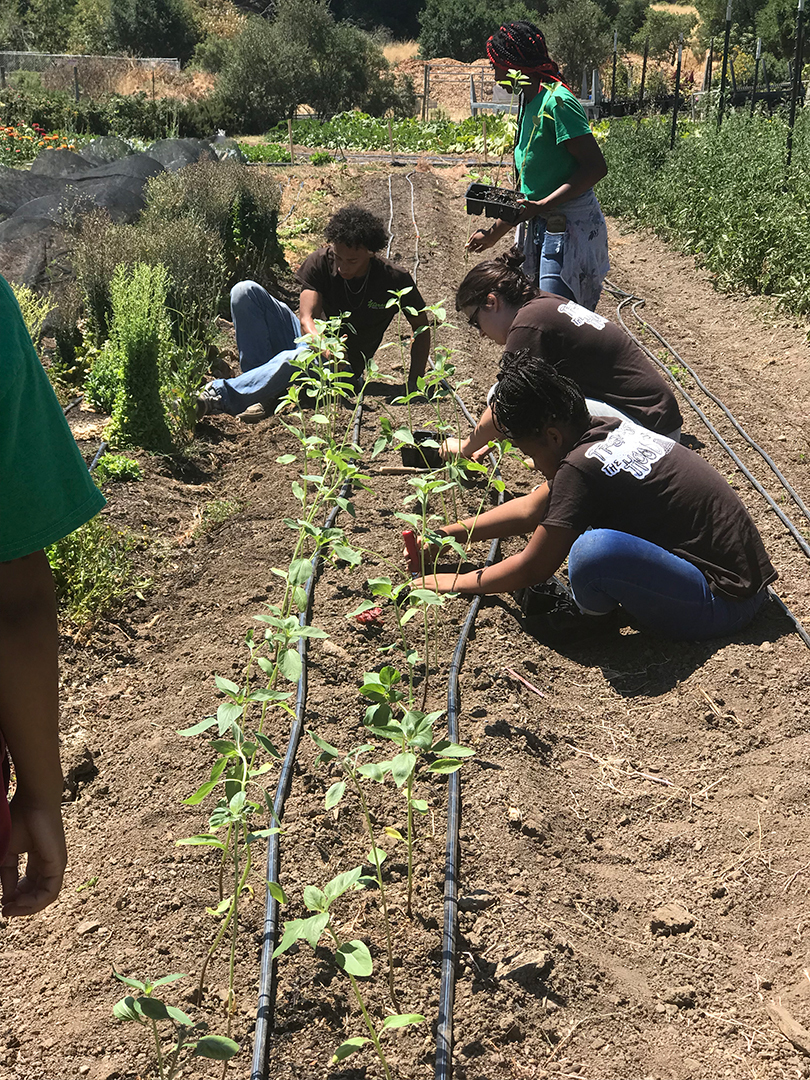
“We have about 50 families — up to three generations in one home — who use about 60 plots and six of them are ADA compliant to accommodate wheelchairs. The residents pay a one-time fee of $80 which is often subsidized, and are supplied basic needs like soil and tools, while the city of Sacramento provides water and waste services,” she said. “There are many benefits of urban agriculture for our families; it makes us healthier, the community stronger and the land and air cleaner.”.
Chanowk Yisrael and his wife, Judith, own Yisrael Farms, a CAFF grant recipient. The 1-half acre farm is in the low-income neighborhood of Oak Park in Sacramento, where there are more fast food restaurants than healthy options. Yisrael plans to use the funds to advocate for and train young farmers.
“We noticed that Black and brown parents did not want their kids going into agriculture, which they associated with a history of slavery and migrant workers. We want to remove the stigma and teach these kids skills so they can get jobs in agriculture,” he said. “Our mission is to transform the hood for G.O.O.D. [an acronym used by Yisarel Farms meaning Growing Our Own Destiny] using urban agriculture.”
In addition to teaching young people, the farm also has a community supported agriculture (CSA) program and an onsite farmstand that sells produce, pasture-raised eggs, handmade soap and honey.
Chanowk Yisrael and his wife, Judith, own Yisrael Farms, a CAFF grant recipient. The 1-half acre farm is in the low-income neighborhood of Oak Park in Sacramento, where there are more fast food restaurants than healthy options. Yisrael plans to use the funds to advocate for and train young farmers.
“We noticed that Black and brown parents did not want their kids going into agriculture, which they associated with a history of slavery and migrant workers. We want to remove the stigma and teach these kids skills so they can get jobs in agriculture,” he said. “Our mission is to transform the hood for G.O.O.D. [an acronym used by Yisarel Farms meaning Growing Our Own Destiny] using urban agriculture.”
In addition to teaching young people, the farm also has a community supported agriculture (CSA) program and an onsite farmstand that sells produce, pasture-raised eggs, handmade soap and honey.
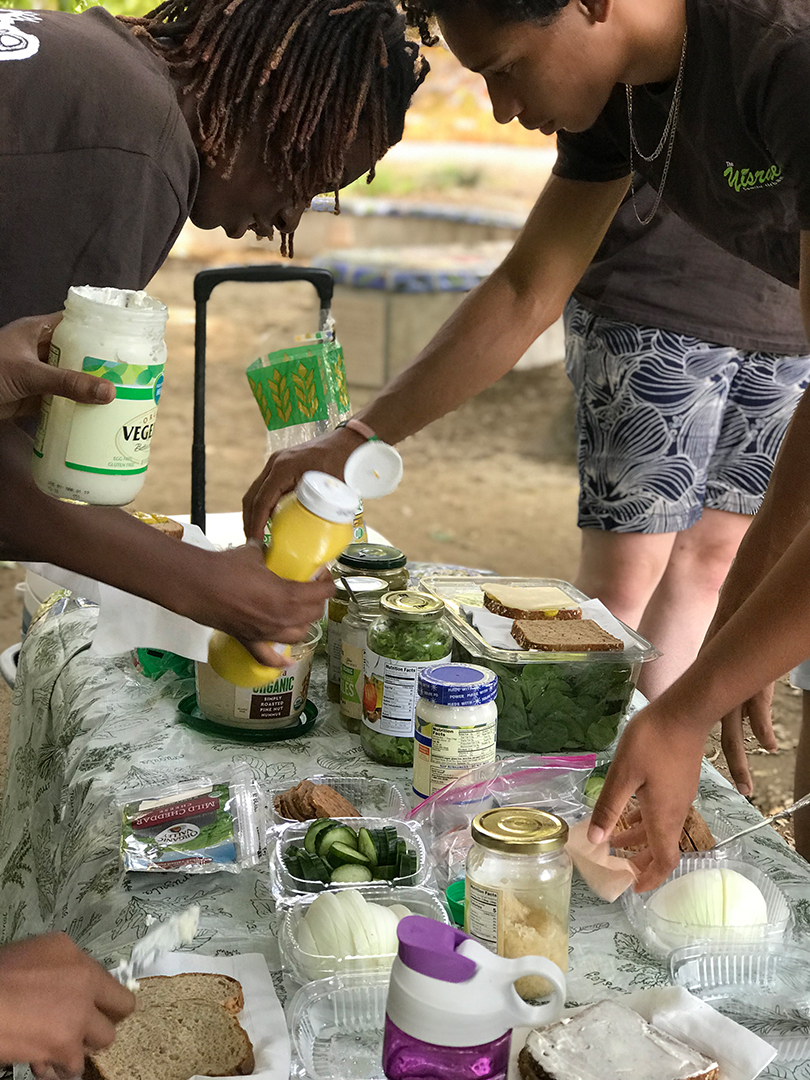
Opportunities for deeper investment
While efforts to grow urban farming are making progress, there are still many challenges including the rising cost and access of land and water, the work of applying for grants and the constant need for funding, especially when first starting out, according to Melbourne.
“We get little to no funding from the City of West Sacramento and receive some money from the City of Sacramento because we have a tree nursery project there, so our biggest challenge, especially in the beginning, is funding. We’ve been successful going after grants and getting foundational support but it’s not easy,” he said.
In unsettling times, Melbourne likes to keep his mind on his community. “I focus more locally and try not to look at the larger picture which is disheartening. I have faith in the American people and in California.”
Uncertainties at a federal level pose a threat to those working to preserve agriculture, with current funding for certain programs frozen or paused.
In March, the U.S. Department of Agriculture abruptly canceled $1 billion in funding that was allocated for schools and food banks to buy food directly from local farmers and ranchers. It also canceled about $660 million in funding for the Local Food for Schools program that 40 U.S, states participated in. On April 4, Gov. Gavin Newsom sent an appeal asking for “a reversal of the termination of $47 million meant to support California’s farmers,” according to a statement from the governor’s office. “California has utilized more than $88.5 million in the Local Food Purchase Assistance Cooperation (LFPA) funding to support local farmers, strengthen the state’s food supply and distribute high quality food to food insecure communities and families,” the statement read.
Ross says it’s too soon to say how the current administration plans to proceed.
While efforts to grow urban farming are making progress, there are still many challenges including the rising cost and access of land and water, the work of applying for grants and the constant need for funding, especially when first starting out, according to Melbourne.
“We get little to no funding from the City of West Sacramento and receive some money from the City of Sacramento because we have a tree nursery project there, so our biggest challenge, especially in the beginning, is funding. We’ve been successful going after grants and getting foundational support but it’s not easy,” he said.
In unsettling times, Melbourne likes to keep his mind on his community. “I focus more locally and try not to look at the larger picture which is disheartening. I have faith in the American people and in California.”
Uncertainties at a federal level pose a threat to those working to preserve agriculture, with current funding for certain programs frozen or paused.
In March, the U.S. Department of Agriculture abruptly canceled $1 billion in funding that was allocated for schools and food banks to buy food directly from local farmers and ranchers. It also canceled about $660 million in funding for the Local Food for Schools program that 40 U.S, states participated in. On April 4, Gov. Gavin Newsom sent an appeal asking for “a reversal of the termination of $47 million meant to support California’s farmers,” according to a statement from the governor’s office. “California has utilized more than $88.5 million in the Local Food Purchase Assistance Cooperation (LFPA) funding to support local farmers, strengthen the state’s food supply and distribute high quality food to food insecure communities and families,” the statement read.
Ross says it’s too soon to say how the current administration plans to proceed.

“Funds were paused for review according to statements that we know of and it’s yet to be determined if they just repackage programs to accomplish some of the things that align with their budget priorities and their policy priorities.This is an administration that says it’s all about making America healthy again; I think it’s too early to comment on what the USDA and the federal administration will or will not do,” she said.
Towers would like to see deeper investment, supportive policies and fresh ideas to mitigate the loss of existing farms so that urban agriculture can continue to flourish in Sacramento.
“Folks who live in urban environments need to get their hands dirty and grow their own food. We need more pathways into agriculture because we are losing four farms a day here in California, and we’re losing folks to retirement,” he said. “If we’re going to proclaim that we’re America’s Farm-to-Fork Capital, then we need to make investments in farmers and chefs.”
Towers would like to see deeper investment, supportive policies and fresh ideas to mitigate the loss of existing farms so that urban agriculture can continue to flourish in Sacramento.
“Folks who live in urban environments need to get their hands dirty and grow their own food. We need more pathways into agriculture because we are losing four farms a day here in California, and we’re losing folks to retirement,” he said. “If we’re going to proclaim that we’re America’s Farm-to-Fork Capital, then we need to make investments in farmers and chefs.”
This story is part of the Solving Sacramento journalism collaborative. Our partners include California Groundbreakers, Capital Public Radio, Outword, Russian America Media, Sacramento Business Journal, Sacramento News & Review, Sacramento Observer and Univision 19. Support stories like these here, and sign up for our monthly newsletter.





